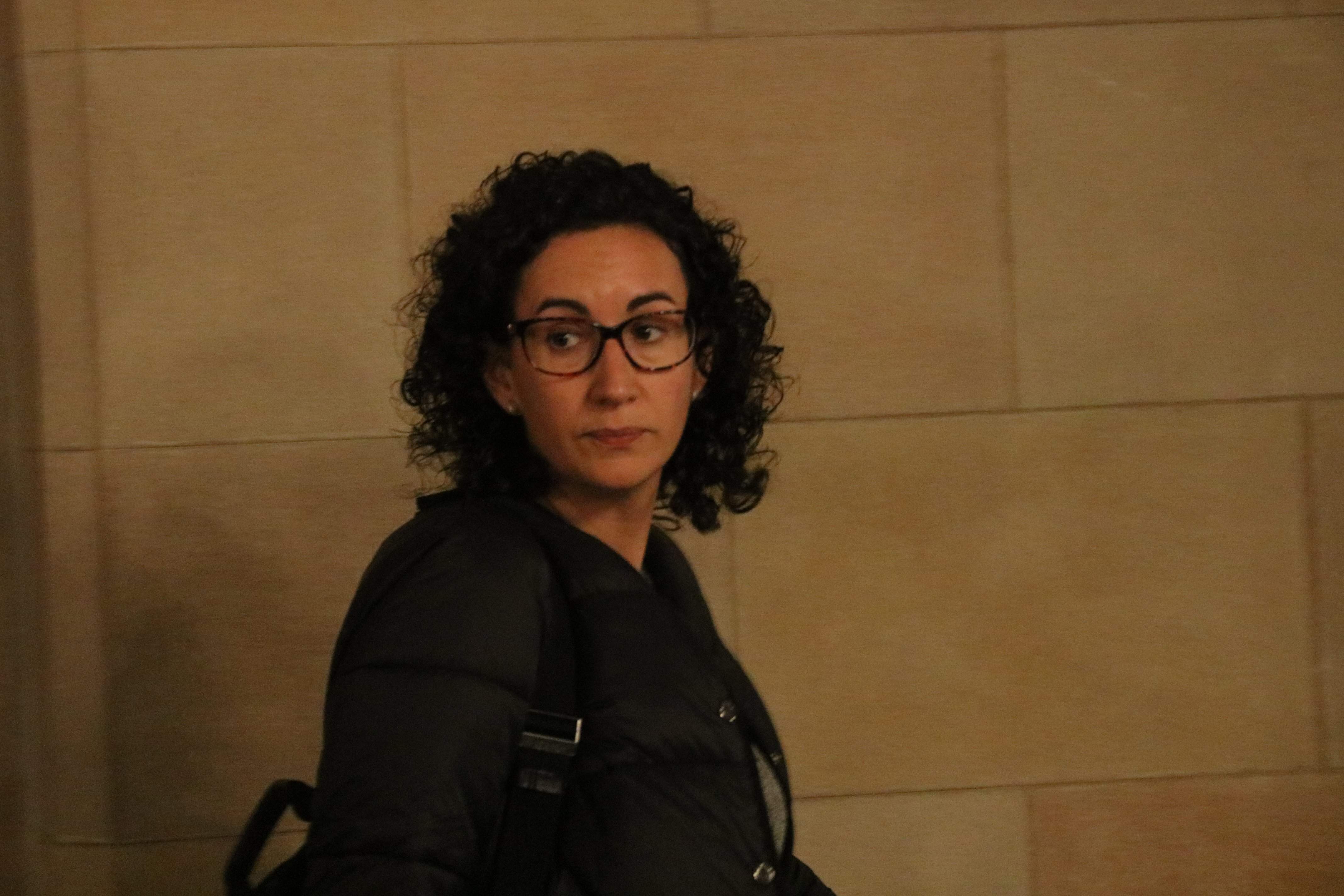The Civil Guard report on ERC (Catalan Republican Left) secretary general, Marta Rovira, is two PDF files from earlier pre-trial proceedings in Barcelona relating to the independence process, which nobody has asked for, but which arrived at Spain's National Audience court whilst judge Carmen Lamela was investigating the case and which, from today, will be with Supreme Court judge Pablo Llarena as part of the case involving the whole Catalan government and independence movement leaders Jordi Sànchez and Jordi Cuixart.
The report summarises a working document, called #EnfoCATs, found in the house of Josep M Jové, general secretary of the Vicepresidency of Catalonia. It doesn't name anyone, but does note job titles, including Marta Rovira's, of those who were to advance the Catalan government after a unilateral declaration of independence.
The document details the structures of state that had been prepared and how the Republic would be set up by a transition government.
But what the Civil Guard highlights in the text, which it is now presenting as key evidence against Rovira for a possible indictment, is that "the strategy passes through an offer to join together the pro-referendum political forces, from which point to offer to negotiate a referendum with the Spanish state" and that "if this isn't accepted, a conflict will take place which could lead to the creation of an independent state which could lead to a referendum negotiated [with Madrid]", nothing the Catalan government hasn't said in the last 18 months.
In their original report, the Civil Guard ignores the fact they are now highlighting: that Marta Rovira is the secretary general of a party and that the secretary generals of the parties were to be included in a transition government to advance the Catalan Republic. The report, on the other hand, on pages 7 and 8, only notes Jové and the presidents of pro-independence organisations Òmnium and ANC (Catalan National Assembly).
Page 40 of #EnfoCATs defines the transition government that never came to be, and, as such, if the judge considers charging the holders of the different roles which appear in it, they would be dealing with non-consummated events, a preventive indictment to avoid potential crimes.
When Llarena arrives at his office in the Supreme Court today he will find the whole pre-trial proceedings which, until yesterday, were held by Lamela at the National Audience. He will also receive the requests for the release from preventive detention of the Catalan ministers and the Jordis which it emerged yesterday are being prepared.
The judge's priority, therefore, will be to study the filings and decide whether to change the cautionary measures taken and let them leave prison on bail, as he allowed the Catalan Parliament's speaker, Carme Forcadell and pro-independence members of the Parliament's Board do.
He will also have to provide copies of the newly-arrived information to the relevant authorities, principally the public prosecutors, because the four involved in the case at the Supreme Court have not yet had access to any of the documentation that has just been sent over by the National Audience.
Among all this information will be the report which, leaks suggest, is to be used to bring charges against Rovira. The report, in fact, originated in the proceedings of Barcelona's court of instruction number 13. Before being moved to the National Audience in Madrid, therefore, it will have had to go through the standard procedure to transfer such information.
It seems that this report has taken the same route as the one against Cuixart and Sànchez, which also started in Barcelona and which the Civil Guard sent to the public prosecutors when they saw that there was a report for sedition against them. That report ended up being used to charge and imprison them. In the case of Rovira however, the judge has not yet seen the document, so he cannot be studying the possibility of indicting her.
Nor has the public prosecutor seen it. They are temporarily paused awaiting instructions anyway after the death of Spain's Attorney General, José Manuel Maza, without his replacement yet confirmed.
Llarena has not yet distributed the documentation. Among other reasons, because it only arrived late on Monday afternoon whilst he was in Barcelona where he had spent the weekend. The report leaked on Friday, however, as soon as the order from the Supreme Court to take on the case was confirmed.

